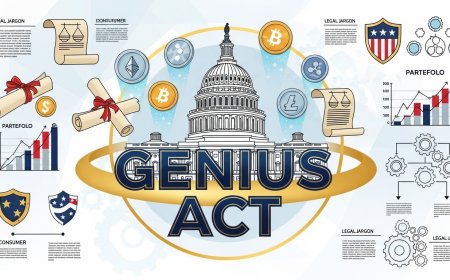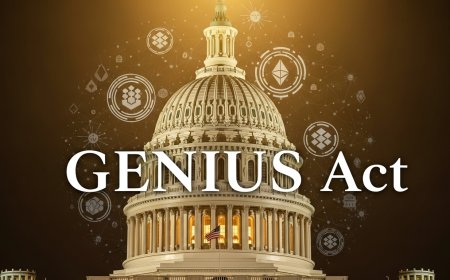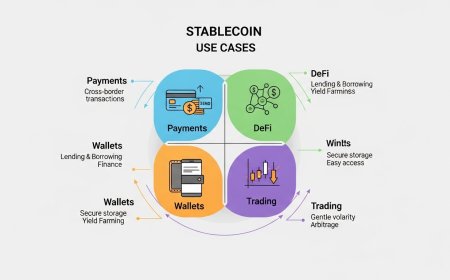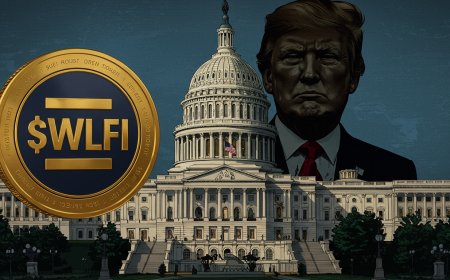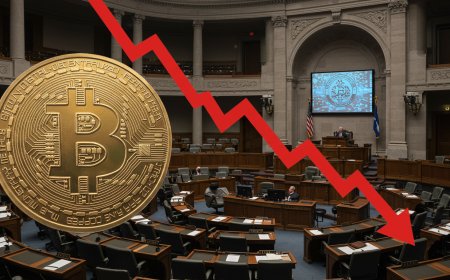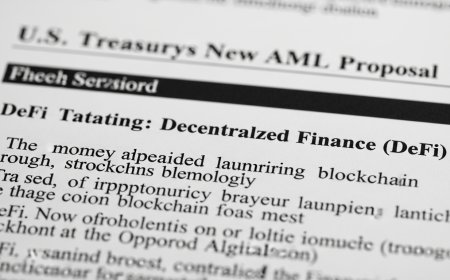Congress Passes Historic GENIUS Act: First Major U.S. Crypto Law Heads to Trump's Desk
U.S. Congress passes landmark GENIUS Act stablecoin legislation in historic 308-122 vote, marking crypto industry's first major legislative victory.
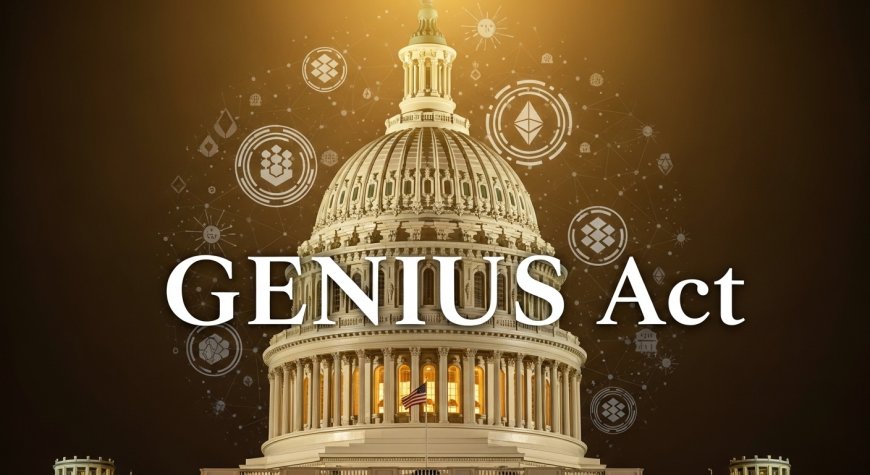
Congress Passes Historic GENIUS Act: First Major U.S. Crypto Law Heads to Trump's Desk
Breaking News: Landmark Cryptocurrency Legislation Achieves Historic Congressional Victory
In a groundbreaking development for the cryptocurrency industry, the United States Congress has passed the Government Electronic Networking and Information Using Stablecoins (GENIUS) Act, marking the first major federal cryptocurrency legislation to reach the presidential desk. The historic vote of 308-122 in favor of the bill represents a watershed moment for digital asset regulation in America.
The GENIUS Act: A Game-Changing Framework
The GENIUS Act establishes comprehensive regulatory framework for stablecoin operations within the United States, providing much-needed clarity for cryptocurrency businesses and investors. This legislation addresses critical gaps in current financial regulations while fostering innovation in the digital asset space.
Key Provisions of the GENIUS Act
Stablecoin Regulatory Framework: The Act creates clear guidelines for stablecoin issuers, requiring proper backing reserves and regular audits to ensure consumer protection.
Federal vs. State Oversight: The legislation establishes a dual regulatory system, allowing both federal and state authorities to oversee stablecoin operations within their respective jurisdictions.
Consumer Protection Measures: Enhanced safeguards ensure that stablecoin users have access to proper disclosure information and regulatory recourse.
Innovation Incentives: The Act includes provisions designed to encourage technological innovation while maintaining appropriate oversight.
Congressional Support and Bipartisan Momentum
The overwhelming 308-122 vote demonstrates rare bipartisan consensus on cryptocurrency policy, with legislators from both parties recognizing the importance of providing regulatory clarity for the rapidly growing digital asset sector.
House Leadership Statements
Congressional leaders have praised the legislation as a balanced approach that protects consumers while enabling innovation. The bill received support from key figures across the political spectrum, indicating a shift toward more crypto-friendly policies at the federal level.
Industry Reaction
Major cryptocurrency companies and trade organizations have expressed strong support for the GENIUS Act, viewing it as a crucial step toward legitimizing digital assets in the traditional financial system.
Market Impact and Immediate Effects
The passage of the GENIUS Act has triggered significant positive movement across cryptocurrency markets, with major digital assets experiencing substantial gains following the congressional vote.
Stablecoin Market Response
USDC and USDT Surge: Major stablecoins have seen increased trading volumes and market confidence as regulatory uncertainty diminishes.
New Market Entrants: The clear regulatory framework is expected to attract new players to the stablecoin market, potentially increasing competition and innovation.
Institutional Adoption: Banks and financial institutions are likely to accelerate their stablecoin integration plans with proper regulatory guidelines in place.
Broader Cryptocurrency Rally
The legislative victory has contributed to a broader cryptocurrency market rally, with Bitcoin, Ethereum, and other major digital assets posting significant gains in the wake of the congressional vote.
Presidential Consideration and Implementation Timeline
The GENIUS Act now heads to President Trump's desk for final signature into law. Given the administration's previously expressed support for cryptocurrency innovation and the overwhelming congressional approval, industry observers expect swift presidential action.
Expected Implementation Schedule
Immediate Effects: Basic framework provisions are expected to take effect within 30 days of presidential signature.
Regulatory Guidance: Federal agencies will have 90 days to issue detailed implementation guidance for stablecoin operators.
Full Compliance: Companies will have 180 days to ensure full compliance with new requirements.
Industry Transformation and Future Implications
The GENIUS Act represents more than just regulatory clarity; it signals a fundamental shift in how the United States approaches cryptocurrency policy and digital asset innovation.
Banking Sector Integration
Traditional Banks: The legislation opens pathways for traditional banks to offer stablecoin services, potentially accelerating mainstream adoption.
Credit Unions: Community financial institutions gain access to new revenue streams through stablecoin-related services.
Payment Processors: Companies like Visa and Mastercard can more confidently integrate stablecoin payments into their networks.
Fintech Innovation Acceleration
The regulatory certainty provided by the GENIUS Act is expected to unleash a wave of fintech innovation, as companies can now develop products and services with clear compliance requirements.
Global Competitive Positioning
The passage of comprehensive stablecoin legislation positions the United States as a leader in digital asset regulation, potentially attracting international cryptocurrency businesses and investment.
International Implications
Regulatory Leadership: The U.S. joins a select group of countries with comprehensive stablecoin frameworks, potentially influencing global standards.
Business Migration: Cryptocurrency companies may relocate operations to the United States to benefit from regulatory clarity.
Trade Advantages: Clear regulations could facilitate international trade using stablecoins, benefiting U.S. businesses and consumers.
Technical and Compliance Considerations
The GENIUS Act establishes specific technical requirements for stablecoin operations, ensuring both security and transparency in the digital asset ecosystem.
Reserve Requirements
Full Backing: Stablecoin issuers must maintain full reserves backing their digital tokens, typically in cash or cash equivalents.
Audit Standards: Regular third-party audits ensure compliance with reserve requirements and protect consumer interests.
Transparency Reports: Monthly public reports on reserve holdings increase transparency and market confidence.
Operational Standards
Cybersecurity Requirements: Enhanced security standards protect against hacking and fraud, safeguarding user funds.
Anti-Money Laundering: Comprehensive AML compliance requirements align stablecoin operations with traditional banking standards.
Consumer Disclosure: Clear disclosure requirements ensure users understand the risks and benefits of stablecoin usage.
Economic Impact and Market Projections
Industry analysts project significant economic benefits from the GENIUS Act's implementation, including job creation, increased investment, and enhanced financial inclusion.
Job Creation Potential
Direct Employment: Stablecoin companies are expected to expand hiring as regulatory uncertainty diminishes.
Indirect Benefits: Supporting industries including legal services, compliance, and technology development will see increased demand.
Regional Growth: States with favorable additional regulations may attract cryptocurrency businesses and associated employment.
Investment Implications
Venture Capital: Increased investor confidence is likely to drive additional venture capital investment in cryptocurrency startups.
Public Markets: Publicly traded cryptocurrency companies may see improved valuations with regulatory clarity.
Infrastructure Development: Investment in blockchain infrastructure and supporting technologies is expected to accelerate.
Consumer Benefits and Protection Measures
The GENIUS Act prioritizes consumer protection while enabling innovation, ensuring that American users of stablecoins have appropriate safeguards and recourse options.
Enhanced Protection Framework
Deposit Insurance: Provisions for potential FDIC-style insurance coverage for stablecoin holdings.
Dispute Resolution: Clear mechanisms for resolving consumer complaints and disputes.
Educational Resources: Requirements for consumer education about stablecoin risks and benefits.
Future Legislative Prospects
The successful passage of the GENIUS Act sets the stage for additional cryptocurrency legislation, with several related bills currently under congressional consideration.
Upcoming Legislation
Bitcoin Strategic Reserve Act: Proposed legislation to establish a national Bitcoin reserve.
Crypto Tax Clarity Act: Efforts to simplify tax treatment of cryptocurrency transactions.
Digital Asset Market Structure Act: Comprehensive framework for cryptocurrency exchanges and trading platforms.
Conclusion
The passage of the GENIUS Act represents a historic milestone for the cryptocurrency industry and American financial innovation. By providing clear regulatory guidelines for stablecoin operations, Congress has taken a crucial step toward integrating digital assets into the traditional financial system while maintaining appropriate consumer protections.
This landmark legislation demonstrates that bipartisan cooperation on cryptocurrency policy is possible and sets a positive precedent for future digital asset regulation. As the bill moves to President Trump's desk, the cryptocurrency industry awaits what many consider the most significant regulatory development in the sector's history.
The GENIUS Act's implementation will likely serve as a model for other countries developing their own cryptocurrency regulations, potentially positioning the United States as a global leader in digital asset policy. For investors, businesses, and consumers, this legislation provides the clarity and confidence needed to fully embrace the potential of stablecoin technology.
With regulatory uncertainty diminishing and clear compliance pathways established, the cryptocurrency industry stands poised for unprecedented growth and mainstream adoption. The historic congressional vote marks not just a legislative victory, but a turning point in the evolution of digital finance in America.
This article is provided for informational purposes only and does not constitute financial or legal advice. Readers should consult qualified professionals before making investment or business decisions related to cryptocurrency.
What's Your Reaction?
 Like
0
Like
0
 Dislike
0
Dislike
0
 Love
0
Love
0
 Funny
0
Funny
0
 Angry
0
Angry
0
 Sad
0
Sad
0
 Wow
0
Wow
0











